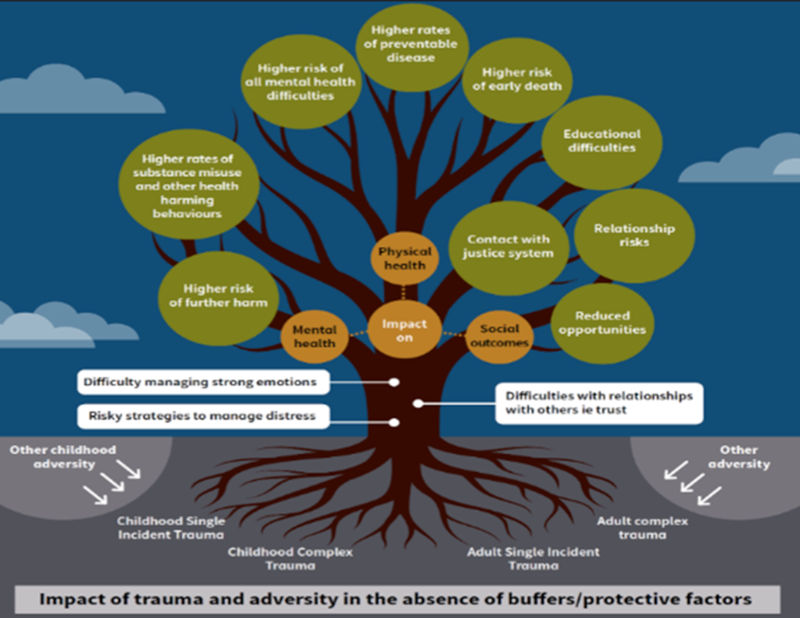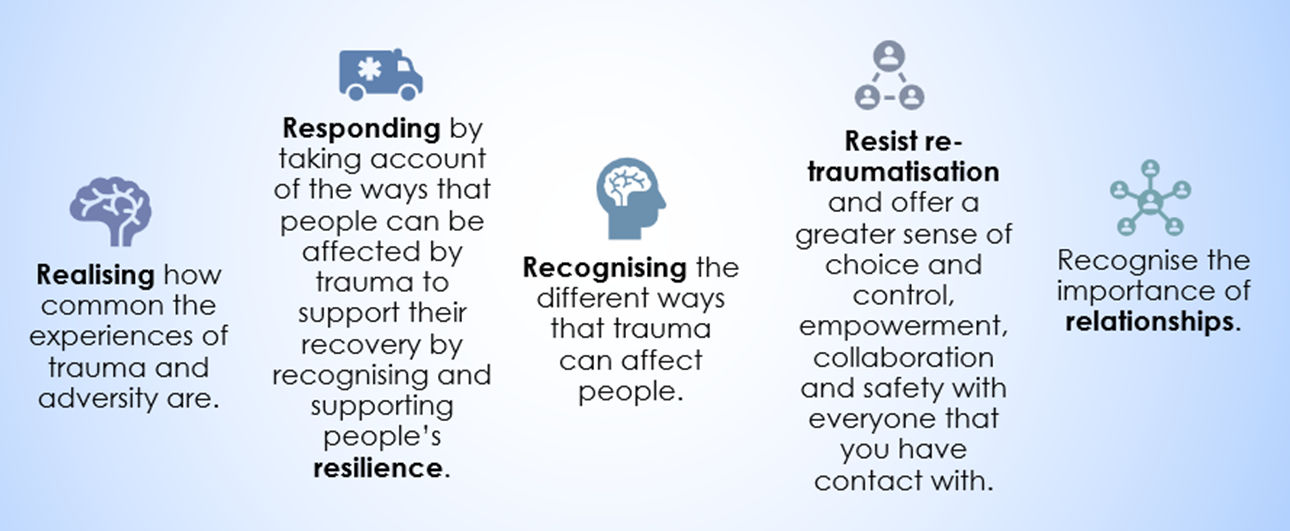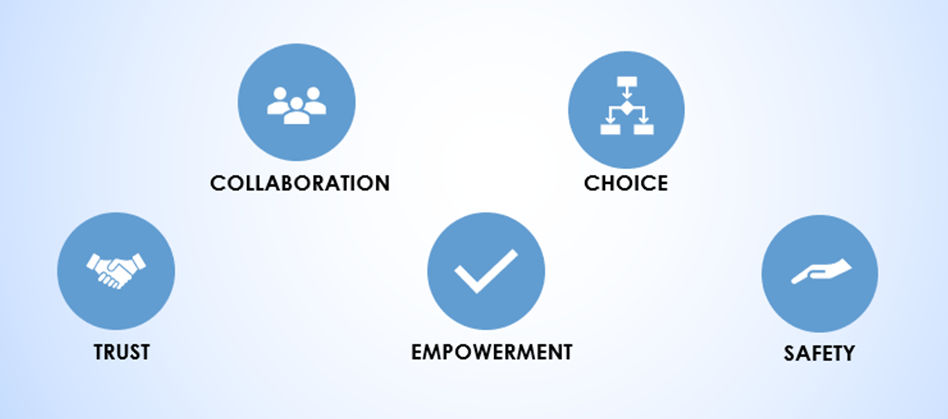What is trauma?
In 2013, the Substance Abuse and Mental Health Services Administration (SAMHSA) developed the following definition of trauma, which has been adopted by the Scottish Government:
“Trauma results from an event, a series of events or a set of circumstances, experienced by an individual as physically or emotionally harmful or threatening, and has lasting adverse effects on an individual’s functioning, and physical, emotional, social or spiritual wellbeing.”
As it says, trauma can be caused by a single event or a series of events and can occur at any time during a person’s life. Each person responds to trauma in individual ways and the impact can be short-term or long-term, depending on their own personal resilience and support network. It is also worth recognising that an event that is traumatic for one person, may not be for another.
The Trauma Tree highlights the potential outcomes of trauma where support, protective factors and acknowledgement of the event are not addressed. It is not to say that a person will experience negative outcomes, but they are more likely to be exposed to them.

Trauma Informed Practice supports people through their journeys by applying key practices and principles, which are -
The 6 R’s:

The 5 principles:
